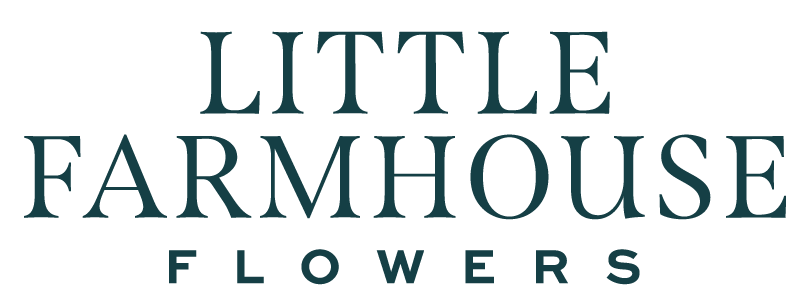Snell Family Farm Best Practices
This month, I served on the New York State Cut Flower Growers Conference farmer-to-farmer panel with good friend and fellow grower Jamie Sammons of Jayflora. Before our panel, we had a chance to hear from other presenters and speakers. Here is a summary of the presentation by Carolyn Snell. If you like these tips from Carolyn, and you'd like to learn more about their great operation in Maine, consider attending the cold climate flower growers conference "Flowering in the North" in Portland, Maine, January 22nd and 23rd. Hope the notes are helpful!
Carolyn Snell: Snell Family Farm (Zone 5, Maine)
Their farm's top producers: Poppies, anemones, peonies, snapdragons, sunflowers, lisianthus, celosia
Hoop houses: Carolyn and her team are in the practice of removing plastic from hoop houses in the winter, when possible, to allow the soil to recover naturally from the growing season. *Given what we heard from Cornell about high tunnel soil findings, this is a great way to keep minerals in check!
Their high tunnels and hoop houses are closed and unheated until March 1. However, they start in February with ranunculus and keep them in a potato cooler until March 1, when they turn on the heat in the greenhouses. In May the ranunculus are planted out.
Snell Family Farm uses a large commercial machine to fill cell packs quickly for planting. They add 2 bales of ProMix 8x and water into the machine and it puts out perfect seed-starting mix.
Snapdragon plugs are sourced from Jolly Farmer and Grown n' Sell. Poppy plugs come from Head Start Farms. When the Snells receive plugs, they are dipped in beneficial nematodes from IPN laboratories.
When the anemones and poppies start to bloom , it is important that they are harvested every day.
They use bent (think of an upside down wide, square U-shape) concrete re-inforcing mesh as you would horizontal netting. The mesh rusts over time, but it is easy to put down and take up (compared to plastic Hortonova trellis netting).
Sunflowers are sown every two weeks from the end of April though June.
Peonies are harvested 3 times per day in the "marshmallow" stage. They are a valuable crop for the farm at $3.50 per stem. (Tree peonies sell for $4.50 per stem)
Asters are grown in the greenhouse in pots.
Lisianthus are planted in groups of 4 in 10-inch, low bulb pots. They lose some to falling stems, but not enough (in their estimation) to make it worth netting them.
Large dinnerplate dahlias (Hamari Gold and Sierra Glow) sell for $4.50 a stem.
They offer popular mini bouquets at market for $8.00 (+ a vase = $12.00)
Bulk flowers may be purchased in 2-gallon buckets for $85.00-$95.00 for single colors or a specific color theme. "Farmer's choice" bulk flowers are $75.00 per bucket.
They sell wholesale, to designers, and direct to customers at three different price levels.
Click here for the high tunnel soil health research summary.
Click here for dahlia production tips from Dr. Chris Wein, Dr Lily calderwood, and Tiny Hearts Farm.

